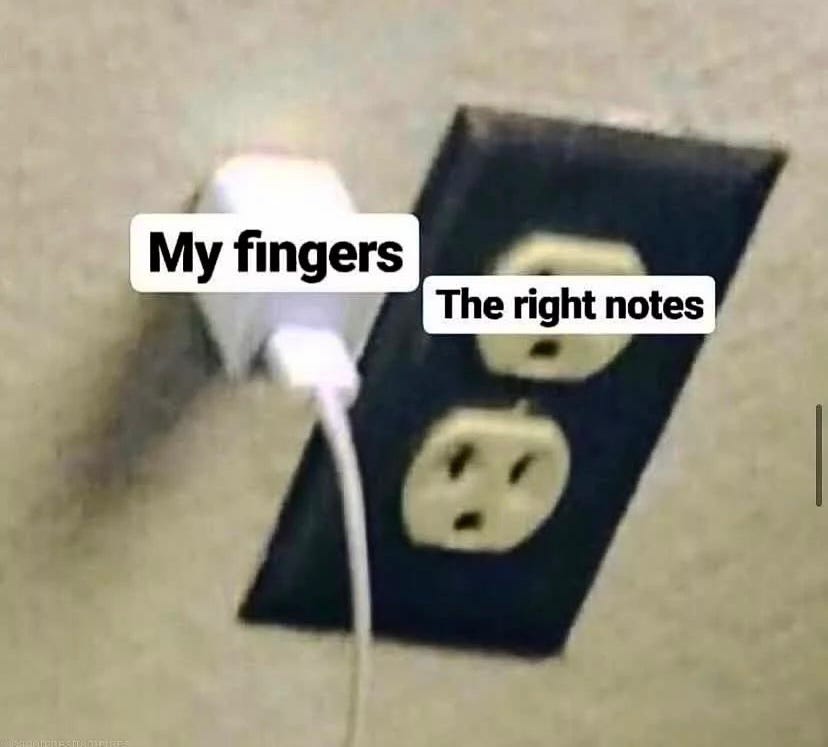Room With Stories
Just gotta live with ‘em…..
Yesterdays Bonus Round: The question “Give it back to who?” Answer: “Give It Back To You” is a song on The Record Company’s 2016 album of the same name. The Record Company is a Grammy-nominated American rock band from Los Angeles. The members are Chris Vos (guitar, lead vocals), Alex Stiff (bass, backing vocals), and Marc Cazorla (drums, backing vocals). Their music is influenced by blues musicians like John Lee Hooker,[1] early punk bands like The Stooges, and rock bands like The Rolling Stones. The trio started in late 2011, hanging up old microphones and recording live in the bass player's living room in Los Feliz, California. Credit: Wikipedia and Allmusic.com
Good news (for me!) - I managed to get my converted bedroom studio mostly rearranged more efficiently and I’m going to be back to finishing up some songs, getting them copyrighted and recorded and see where we go from there. I’ll give periodic updates on that process. Some final cleanup today and back at it!
Setting up a home studio is mostly making the best of the space you have. If all you have is a living room or a closet (not as uncommon as you might think), do what you can with it and start recording!
My philosophy is to “take the room out of the mix”. There are likely other approaches, your mileage may vary, and in truth you can never take the room completely out of the mix.
Ideally, if you can start with an empty room, no acoustic treatment at all and minimal or no equipment and furniture in the room, you could take a baseline reading with just you, a calibrated mic and laptop with the Room EQ Wizard (REW) software I linked to yesterday loaded and some small speakers to produce an acoustic signal. As you add equipment and the tables and chairs and other furniture, and whatever acoustic treatment you can afford, take frequent readings and compare each significant change you make to the room. My goal was to get the graph that the REW software produces as “flat” (horizontal) as possible. There will be a point of diminishing returns. At that point, for me at least, further treatment to the room was producing less change in the graph, and my approach was to spend wisely on mixing hardware such as great studio monitors, audio interfaces and microphones, as well as great software to “mix out” whatever lingering acoustic issues remain in the room. More “stuff”, such as thick rugs, comfy chairs, maybe a couch and the inevitable collection of amps and things that seem to accumulate in studios can break up some of the bass issues low in the room and from the floor, but the reflectivity of the ceiling and upper portions of the walls remain.
Bottom line, little will be cheap or easy, but tailor your expenses and effort to your goal. If you’re rehearsing for live gigs with a band or recording at a professional studio and just want to hear your part for feedback to improve your guitar sound or vocals, don’t spend too much time and effort on the room. Everywhere you play will likely have different acoustics and you’ll have to adjust on the fly. If you’re recording to release a song publicly, it’s probably wise to spend what you can in effort and expense to get to mixed “stems” - the processed tracks - that you can take to a professional studio for mastering.
Despite all of that, save some of your budget for lessons from a great local guitar instructor and maybe a local vocal coach. Every audio engineer or producer will tell you great music starts with, wait for it……great music! Mediocre music can be helped, but there’s a limit to how much. Bring your best to your own recordings, and take them to a producer/engineer/professional studio for polish and finishing touches in the master, but not with the idea of transformation into “great”. “Great” starts with your best and your best is the result of continuous improvement through practice and hard work (and a pretty sizable helping of frustration) and help from instructors/coaches and then leaving your doubts and fears behind. You can do this!!!
Links in no particular order at all:
Made me laugh cuz it’s true:
Hopefully those, and figuring out the Bonus Round will keep you busy until next week!
Bonus Round: Messing around with Jim….
Cheers, and keep playing!!
Michael Acoustic




Your posts always make me want to improve — thank you so much for collecting and sharing all these amazing resources!